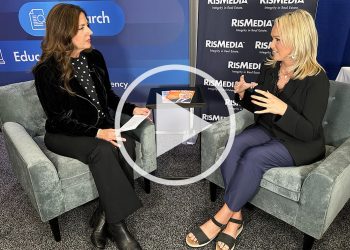“As brokers, we need to ask ourselves what we can do to inspire ongoing growth—and how a fragile recovery might be impacted by legislative changes,” stated Rei Mesa, Special Liaison for Large Firm Relations, NAR, and President/CEO, Prudential Florida Real Estate Services, in this month’s Roundtable discussion in RISMedia’s Real Estate magazine. Read on to learn how top brokers are tackling this challenge.
Moderator:
Rei Mesa, Special Liaison for Large Firm Relations, NAR, and President/CEO, Prudential Florida Real Estate Services
The Power Broker Roundtable is brought to you by the National Association of REALTORS® and Rei Mesa, NAR’s Special Liaison for Large Firm Relations. Watch for this column each month, where we address broker issues, concerns and milestones.
Participants:
Robert J. Bailey, Broker, Bailey Properties Inc., Aptos, Calif.
Jason Waugh, President/CEO, Prudential Northwest Properties, Portland, Ore.
Tracy Hutton, President, Century 21 Scheetz, Indianapolis, Ind.
Rei Mesa: A California newspaper reported recently that home sales in pricey Orange County are heating up this spring at a pace not seen in years. In Atlanta, Ga., inventory is down, listing prices are up, and the average days on market is markedly lower than it was a year ago. And in my home state of Florida, sellers are getting nearly 90 percent of asking price. As brokers, we need to ask ourselves what we can do to inspire ongoing growth—and how a fragile recovery might be impacted by legislative changes in discussion, which range from changing the capital gains exception to eliminating property tax and/or mortgage interest deductions. Robert, how do you view the current scenario?
Robert Bailey: I think there’s no question we are seeing signs of recovery—and in California, where housing is critical to the general economy, any disruption of this fledgling recovery would be disastrous. Any reduction of homeowner tax benefits now would seem to fly in the face of reason.
Jason Waugh: The bright spot for us this spring is that agents believe things are better—and so, in fact, they are getting better. Any of the proposed legislative changes would have a negative psychological effect. We can only hope they don’t provide enough of a distraction to impede the recovery momentum.
Tracy Hutton: Our market in Indiana is very promising. Inventory is shrinking, and for the first time in a long while, agents are fielding multiple offers. But timing is everything, and we can’t roll the dice that these legislative changes won’t happen. It will indeed take a loud, united voice to stand for what we know is right—which is why I will be in Washington on May 17 for the REALTOR® Rally to Protect the American Dream.
RM: There seems to be a general consensus not just that things are improving, but that this would be a devastating time to reduce homeowner benefits. And since Tracy opened the door here about the rally in D.C. during the NAR Midyear Legislative Meetings & Trade Expo, how committed are we to uniting behind the NAR position?
JW: One hundred percent, both at the regional and state association levels and with NAR at the federal. We have to be committed. This is our power base, there is no one else out there, and broker involvement is our best opportunity not just to drive business, but to drive home the importance of preserving the homeownership benefits that have been hallmarks in American life.
RB: I look for huge support during the Midyear Meetings and rally, which I hope gets all the media coverage it merits. Beyond that, what I stress to agents now is what I see as our obligation in today’s market: to help consumers re-engage in the American Dream…to stay focused on the old-school promise about the benefits of owning a home: safety, security, stability and long-term growth, despite the downturn of the past few years.
TH: Absolutely. Our responsibility as brokers is to salvage the dream of homeownership, with a unified voice at the national level but also with grass-roots messaging.
RM: It’s pretty clear today we are on the same page—not just about the need to make our voices heard, but about the messaging we need to engage. See you all in Washington later this month.










